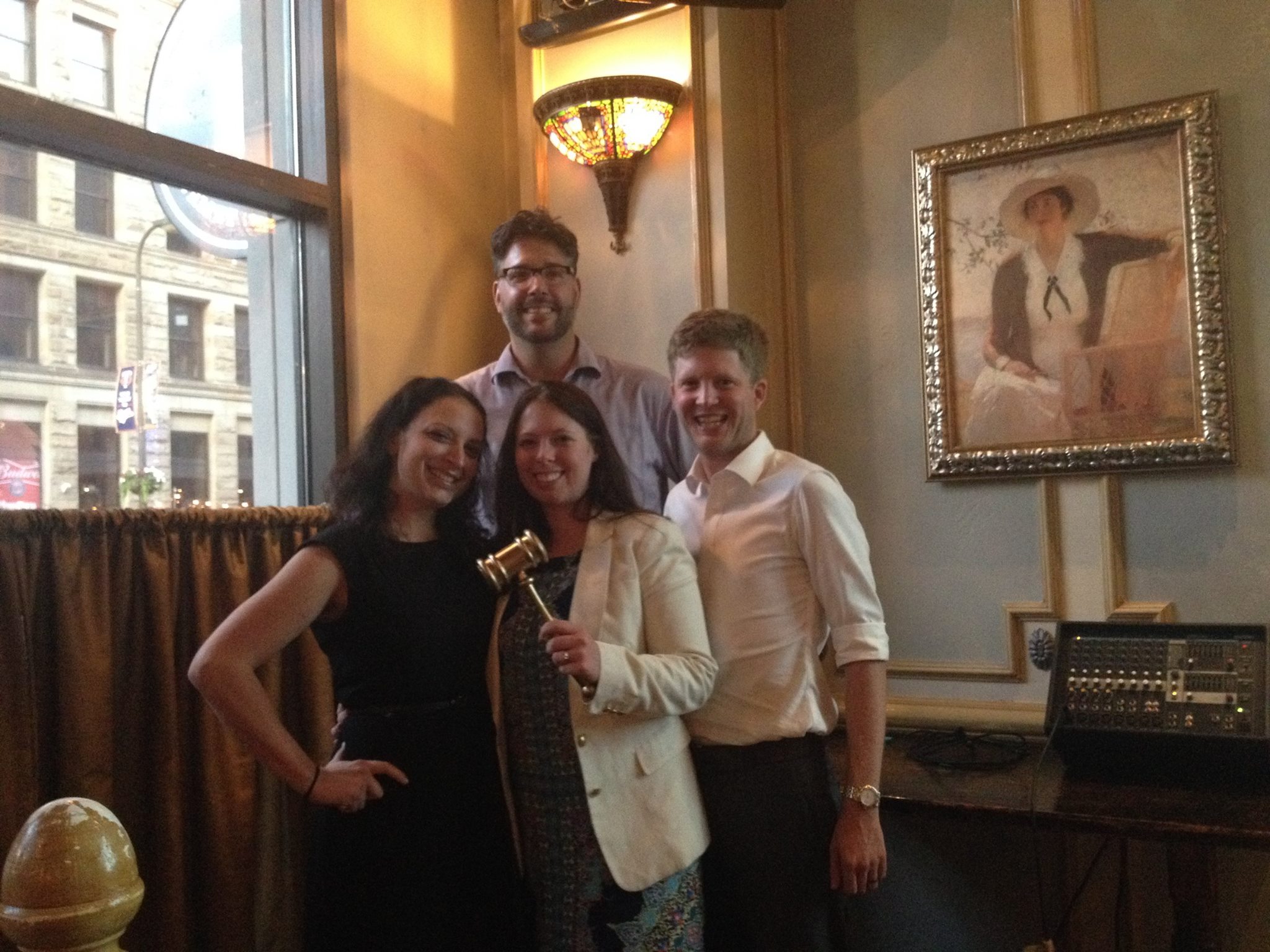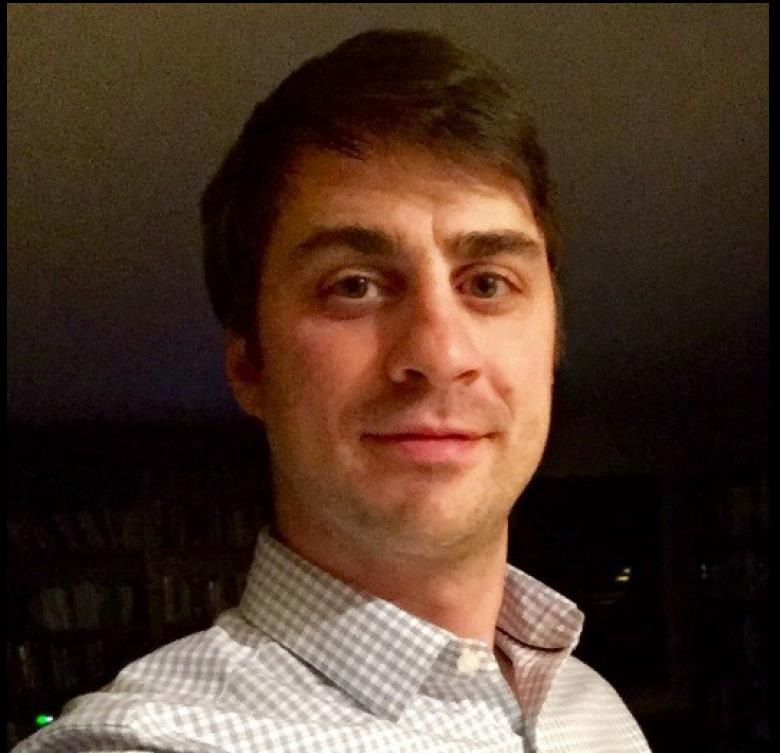2016 Annual Awards Celebration
On Wednesday, November 16, 2016, MJF will host its Annual Awards Celebration, at which we honor outstanding individuals in the Minnesota legal community.
Awards will be given in the following categories;
- Law Student Volunteer Awards (one from each of the three Minnesota Law Schools)
- Private Practice Lawyer Award
- Advocate Award
- Direct Legal Service Award
Our keynote speaker will be Marianne Short, Executive Vice President and Chief Legal Officer of UnitedHealth Group.
Tickets can be purchased by emailing MJF administrator Pat Harrigan. Prices are:
$75 for individuals
$40 for nonprofit public service employees
$25 for students
Please visit our Annual Awards Celebration page for more information.
MJF Trivia Contest
MJF held its fourth “Legal(ish) Trivia Night” at Kieran’s Irish Pub on August 2, 2016. Eleven teams competed, answering questions about Law and Culture, Songs About Crime, Constitutional Law, TV Lawyers and Terms of Art. The event was hosted by Twin Cities actor Tim Uren.
Teams were asked questions such as “Which Constitutional Amendment took the longest time to ratify?,” “What is the meaning of the term Ab Agendo?,” and “The 1972 Rolling Stones song “Sweet Black Angel,” from their album Exile on Main Street, is about which civil rights activist who was facing murder charges at the time?”
The winner of the Golden Gavel is pictured above: Front row: Phoebe Taurick, Ashley Geisendorfer, and James Ortmann. Back row: Brendan Keenan.
MJF plans to host another trivia contest in 2017. Sign up for our newsletter to keep informed.
Board Member Profile: Luke Grundman and the Whittier Clinic
Luke Grundman is an attorney with Mid-Minnesota Legal Aid, staffer at the Whittier clinic, and since 2014 a Minnesota Justice Foundation board member. As a law student himself and then as a serial consumer of MJF volunteers, Luke has seen how important MJF is to the students and the clients who benefit from its services. Luke has worked with Legal Aid since he was a first-time MJF volunteer in his second year of law school—nine years ago. Luke started with Legal Aid’s Consumer Unit as an Equal Justice Works fellow in 2009 and worked primarily in consumer and housing law since then until he took over the staff attorney role of the Whittier partnership in January 2016.
Primary care doctors put in referrals on behalf of their patients all the time. Whether they send a patient to a physical therapist, a psychologist, or a surgeon, the doctor knows that talking to the right professional can improve the patient’s overall health. At the Whittier Clinic in south Minneapolis, the doctors have another option: Legal Aid lawyer.
Thanks to a medical-legal partnership between Mid-Minnesota Legal Aid and the Hennepin County Medical Center, patients at the Whittier Clinic can access the legal services they need to stay healthy. Lawyers make sure that low-income patients experience the safe and habitable rental housing entitled to them by state law. They ensure that diabetic homeless people get the right amount of food support to prevent health emergencies. And they work closely with the providers and staff of the Whittier Clinic—people who, on an individual level, match the generosity and patient-focused mentality of HCMC itself. They are the “legal aiders” of the health care world. And HCMC’s continued generosity has allowed Legal Aid to keep the partnership going, providing legal representation to more than 500 Whittier patients in just three years.
The Whittier partnership relies on help from law students through the Minnesota Justice Foundation. In 2016, three law students donated their summers to Whittier. With 25-35 referrals coming per month, the students worked with patients to identify legal needs. They also provided invaluable support on open cases: They drafted benefits appeals, court complaints, and immigration application forms. They argued motions in court and negotiated with opposing counsel. On one Sunday morning, a student traveled to a client’s house in order to take videos of bedbugs crawling across a child’s mattress. Another spent days listening to committee hearings and poring over legislative history. Whittier patients continue to ask for the students by name when they arrive for appointments.
The Whittier experience has reinforced Luke’s passion for Legal Aid work. Many of the Whittier clients Luke has represented through the partnership have sound legal claims but a striking inability to express them or to advocate on their own behalf. They are the people most in need of legal services in our society. Luke says that what he most enjoys about Whittier is the chance to help people where they already are. With guidance from mentors, Luke planned early in law school to find those most need of help and to use his talents to do what he could. Whittier gives him that opportunity.
More testimonials about the Whittier clinic:
“I am interested in health law and immigration, so that’s why I was interested in volunteering in the medical legal partnership. During my time at the partnership, I was exposed to a variety of law: housing, family, immigration, etc. I enjoyed doing different things every day: going to court, doing client intake, following up with clients, client meetings, writing demand letters, researching legal issues, etc. This service delivery model is unique and allows the doctors to refer patients to the lawyers in the clinic.
“One case we worked on was a bedbug case where the children were seen for bed bug bites, and the landlord had made the renters sign an illegal document saying they were responsible for the bedbugs. We were able to get involved and induce the landlord to exterminate the bedbugs, thus improving the health of the family.
“Having a free lawyer in a medical clinic is a great service to offer to patients. The Whittier clinic medical legal partnership specifically serves low-income clients, who are especially in need of free legal services. Providing these services can drastically improve these people’s lives. For some of these clients it was a matter of having a home or becoming homeless, being able to stay in the USA or being deported, getting child support or going without. It was good work that made me feel like I was making a difference every day I went to work.”
—Anna Zagaria Meyer (Mitchell Hamline)
“I first became interested in the Whittier medical-legal clinic because my wife is a physician at HCMC and her position provided me with a unique window into the health care needs of the low-income community in Minneapolis. While volunteering at the clinic, I was able to help clients that would likely not have access to the legal system without the partnership.
“What I learned from this experience is that the medical-legal model is not just a social justice issue, this is also a taxpayer issue. The partnership provides an incredible opportunity to address the social determinants of health—affordable housing, employment, immigration status—which can keep people out of emergency rooms. Emergency care is the most expensive form of care available, and we are all paying for this in our taxes and our health care premiums. Instead, we could be spending this money building better schools, more affordable housing, or ensuring that everyone has access to clean water. That’s why I got involved.”
—Kyle Payne (Mitchell Hamline)


